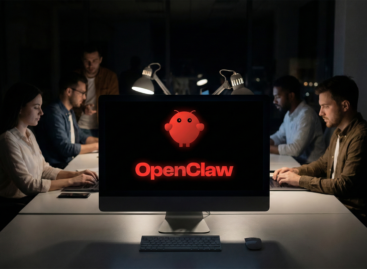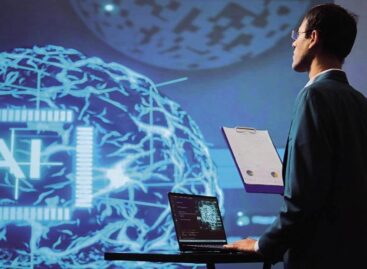Artificial intelligence at every level – Bosch opens a new era in innovation
Based on the developments presented at the AI Symposium in Budapest, Bosch is now not only applying, but also shaping the future of artificial intelligence. The company’s goal: transparent, human-centered and sustainable AI solutions from manufacturing to self-driving.
 Artificial intelligence is not just another technological tool, but a turning point in civilization – this was stated at the AI Symposium organized by the HUN-REN Hungarian Research Network in Budapest. Bosch experts, as a featured partner of the event, demonstrated how AI is becoming an everyday, even indispensable, development and production factor at the company.
Artificial intelligence is not just another technological tool, but a turning point in civilization – this was stated at the AI Symposium organized by the HUN-REN Hungarian Research Network in Budapest. Bosch experts, as a featured partner of the event, demonstrated how AI is becoming an everyday, even indispensable, development and production factor at the company.
There is no longer a Bosch product without AI
Bosch aims to make artificial intelligence the key to the next decade of innovation. In line with this, every Bosch product now either contains an AI component or is developed or manufactured with it. Currently, more than 5,000 AI experts work for the company worldwide, including 200 in Hungary. Over the past five years, more than 1,500 AI-related patents have been filed, and tens of thousands of employees have participated in AI training – more than a thousand in Hungary so far.
“At Bosch, we are already preparing for the future,” said Zoltán Karaffy, Director of Digital Transformation at Robert Bosch Kft., who emphasized in his keynote speech that the goal is not only to follow, but also to shape the highest industry standards.
Thinking cars: the revolution of neuromorphic computing
The future of AI is particularly important in the automotive industry. Bosch’s developments already include so-called neuromorphic systems that model the functioning of the human brain, which raise the performance of driver assistance systems (ADAS) to a new level. These solutions enable faster, more reliable and more energy-efficient decision-making in real time, which is key to preventing accidents.
Neuromorphic chips process data from dozens of sensors (radar, lidar, camera, etc.) used by vehicles in a similar way to the brain, while consuming much less energy than traditional systems.
Transparent decisions in smart factories
Bosch is not only building faster, but also more transparent artificial intelligence. The essence of the so-called “explainable AI” approach is that systems do not operate as “black boxes” but can be decoded, interpreted, and justified in their decisions.
This is particularly important in semiconductor manufacturing, where early error detection can prevent millions in product defects. Industrial AI not only filters out defective components, but also provides feedback on the cause of the error – thus helping to prevent and optimize production.
Related news
Expert: EU AI regulation is here, but Hungarian businesses will have time to prepare for the changes
🎧 Hallgasd a cikket: Lejátszás Szünet Folytatás Leállítás Nyelv: Auto…
Read more >Hungarian world first: AI calculator calculates how much a company will lose during the flu season and how much can be saved by using preventive technologies
🎧 Hallgasd a cikket: Lejátszás Szünet Folytatás Leállítás Nyelv: Auto…
Read more >Related news
How does the forint exchange rate affect consumer prices?
🎧 Hallgasd a cikket: Lejátszás Szünet Folytatás Leállítás Nyelv: Auto…
Read more >HELL CITY has arrived, led by Michele Morrone
🎧 Hallgasd a cikket: Lejátszás Szünet Folytatás Leállítás Nyelv: Auto…
Read more >








